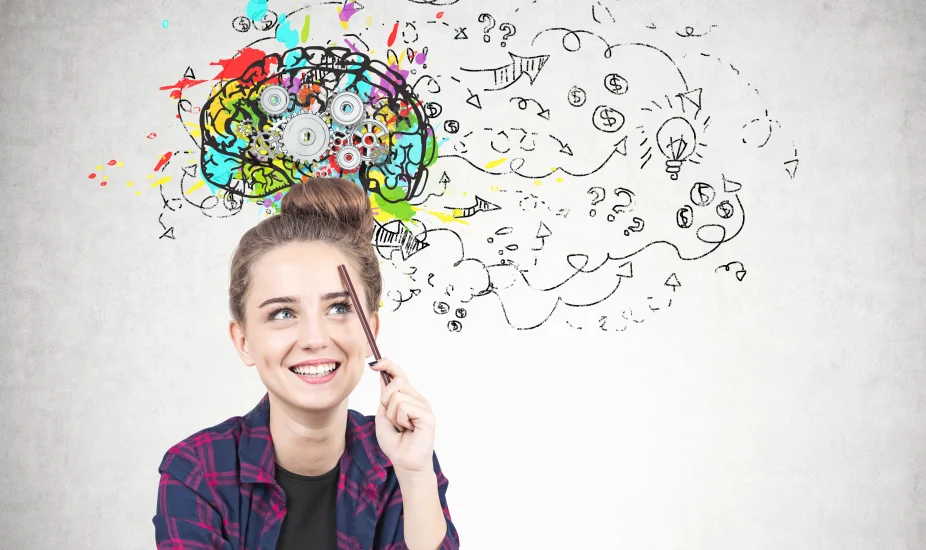The Brain’s Response to Natural & Artificial Highs A 3-Part Video Series: A powerful tool for educators to open up discussions about peer pressure, addiction, and the importance of making informed choices.
In today’s educational landscape, engaging students in meaningful and impactful ways is a top priority for educators. It’s not just about delivering information; it’s about making learning an experience that resonates with students, empowers them, and provides them crucial life skills.
Natural High’s three-part video series, “The Brain’s Response to Natural & Artificial High,” aims to make learning impactful and resonate with students.
Educators can facilitate discussions about natural highs, enabling students to share their experiences and insights while fostering a sense of community and trust within the classroom.
Understanding Natural Highs
Teens often seek excitement in various activities, but not all choices are equal. Our video series delves into the concept of natural highs – those experiences that bring genuine joy and fulfillment. From playing games to sharing laughter with friends, these are termed “natural highs.”
Natural High is a youth drug prevention nonprofit that inspires and empowers youth to find their natural high and develop the skills and courage to live life well. You can read more about us here.
Dopamine and Natural Highs
The first video takes a deep dive into the world of dopamine, the brain’s pleasure messenger, revealing how activities release this chemical, leading to joy and motivation. Each of us finds joy in different activities, yet chasing natural highs invariably leads to a brighter future.
When students watch these videos, they not only gain a scientific understanding of dopamine but also learn how their brains work when it comes to motivation and action. They discover that their preferences, what they find most rewarding, are what make them uniquely themselves.
The Pitfalls of Artificial Highs
The second video shifts focus to the dangers of artificial highs, exploring how drugs can manipulate the brain’s reward system, creating a dopamine “superhighway.” Students learn about the risks of drugs and the consequences of addiction, making it an essential tool for educators to discuss peer pressure and informed decision-making.
Choosing Natural Highs Over Artificial Ones
The third video emphasizes the importance of nurturing natural highs and positive relationships, underlining the pitfalls of artificial highs. Students learn how seeking healthy natural highs contributes to a fulfilling life.
Now, let’s explore 7 reasons why educators should consider showing these videos in their classrooms:
- Engagement: These videos are designed to captivate students’ attention with dynamic content that is both informative and visually appealing. They transform learning into an engaging experience that resonates with today’s tech-savvy youth.
- Science-Based Learning: The series offers a science-based approach to understanding the brain, making complex concepts accessible and relatable to students. It enhances their comprehension of their own behavior, choices, and the world around them.
- Relevance: Tackling issues like peer pressure and drug risks, the videos are pertinent to students’ experiences.
- Empowerment: Students gain essential knowledge about the potential consequences of artificial highs and the concept of natural highs, better equipping them with tools to make informed decisions. This empowerment can lead to healthier choices and better decision-making skills.
- Encourage Critical Thinking: The videos encourage critical thinking and self-reflection. Students are prompted to consider what activities make them feel good and why. This critical self-awareness is crucial for personal growth.
- Supports Mental Well-Being: Natural highs are closely linked to mental well-being. By identifying and embracing activities that provide genuine happiness, students can develop healthier coping mechanisms and reduce stress.
- Builds Resilience: Understanding the brain’s response to natural highs helps students build resilience against peer pressure and unhealthy temptations. Life is full of challenges, and resilience is a key trait teens need as they navigate the ups and downs of adolescence.
The Brain’s Response To Natural And Artificial Highs series serves as a valuable resource for teachers aiming to reinforce the importance of making responsible choices and staying drug-free.
Using these videos not only enhances the learning experience but also facilitates in-depth conversations on crucial subjects like drug prevention, decision-making, and the science of happiness.
To foster an open dialogue, consider posing thought-provoking questions to your students:
- What activities or experiences bring you genuine happiness and fulfillment?
- How can understanding the science of dopamine help you make better choices in your life?
- Share examples of natural highs in your own life and how they contribute to your well-being.
By taking these steps, you’re not just imparting knowledge; you’re nurturing curiosity, critical thinking, and resilience in your students.
As educators, we have the privilege and responsibility to shape the future by empowering our students with knowledge and skills. The Brain’s Response To Natural And Artificial Highs series offers a valuable resource to achieve this goal.
You can supply students with the knowledge that empowers them to say “NO” to drugs and harmful behaviors and “YES” to a natural high.
So, here’s our call to action: Share this three-part video series with the teens in your life. Whether you’re an educator, a parent, or a mentor, these videos offer a powerful tool to engage, educate, and empower kids.
Let’s work together to equip the next generation with the knowledge and skills they need to make informed choices and lead happier, healthier lives. Together, we can make a difference!

